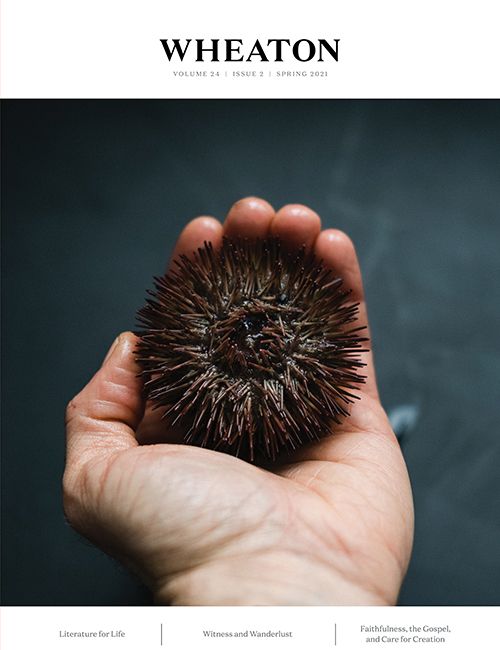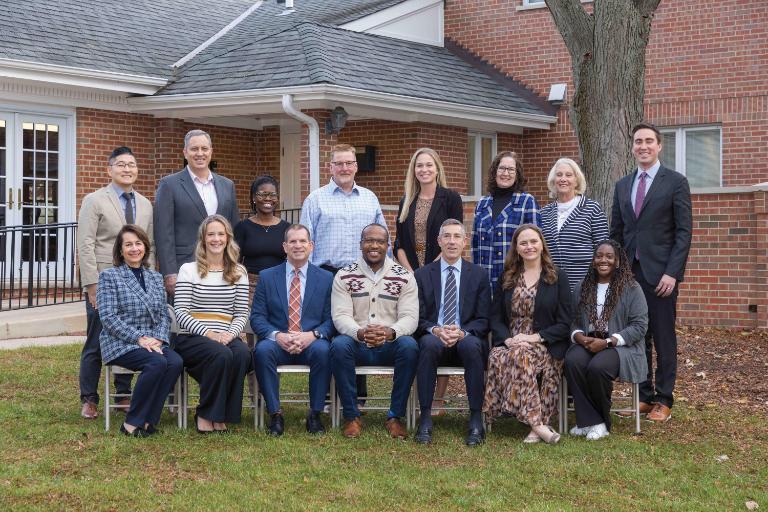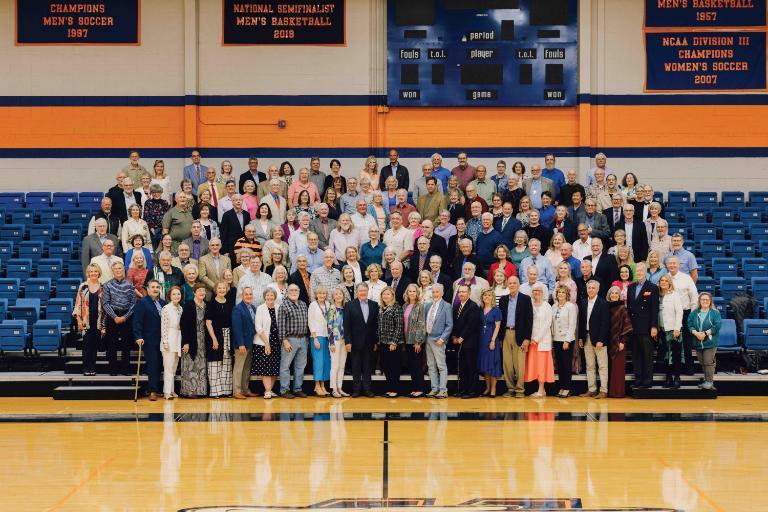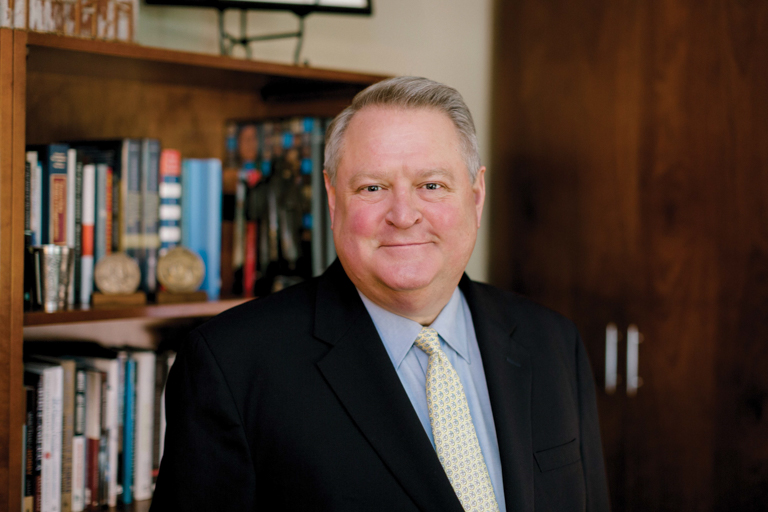A Sacred Space
Liesel Mindrebo Mertes ’06 considers what it means to ‘show up’ in hard times
Words: Liuan Chen Huska ’09
Photos: Ann Powell Denton
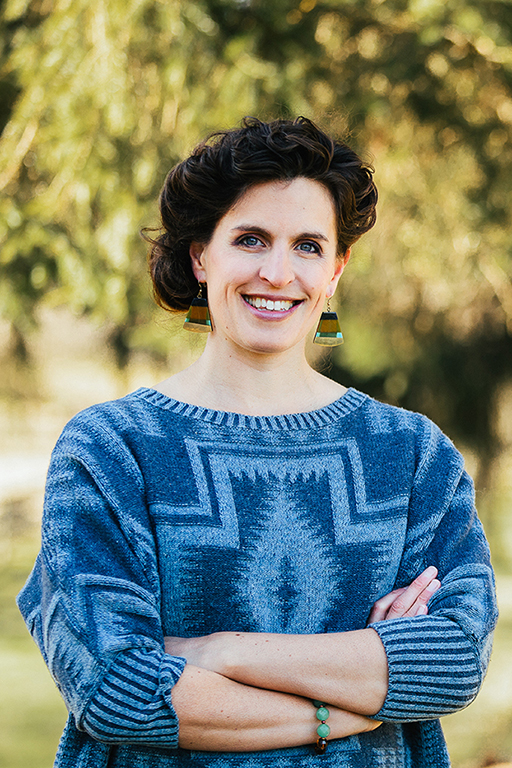
A few years ago, as the Midwest winter slumped into February, Liesel Mindrebo Mertes ’06 felt desolate. The month marked the birthday of her third child, Mercy Joan, who was born February 15, 2011 and died a week later. Mercy had been born with a neural tube defect.
“She was a beautifully formed baby,” Liesel said.
That day, Liesel felt the loss deep in her bones and reached out to those closest to her. Her mother responded: “I hear you feel hollowed out. I see it almost in that womblike imagery, as creating a space that can hold other people—their stories and sadness.”
Her mother’s words continue to unfold in Liesel’s work today as a workplace empathy consultant.
“When you have a sad story, you become a collector of sorts of other people’s sad stories,” Liesel said.
As she has heard from others and reflected on her own losses and life disruptions, she notes that some people are really helpful at coming alongside others. Others, however, have really good intentions but have no idea what they’re doing. Liesel founded Handle with Care Consulting in 2018, and the podcast a year later, to help employers apply empathy skills to their management and processes.
Empathy is an essential leadership skill, Liesel said, especially in 2020 when everyone experienced life disruptions: “I want to make work a place that people want to go when times are hard.”
Liesel’s journey into this role has been “distinctively nonlinear.” As a political science major, she and her husband Luke Mertes ’06, M.A. ’07, dove into international development and microfinance after graduation. Upon returning stateside from a stint in Nairobi, Kenya with two young children, Liesel started an MBA program at Indiana University. During this program, she carried and lost her daughter Mercy.
At the end of her program, Liesel took a break to let her recent experiences sink in. She also brought two more children into the world, including their last child who had heart problems and required multiple surgeries. Liesel’s work at Handle with Care emerged from engaging the question, “What does it look like for people to show up in a meaningful way in hard times?”
Liesel draws from her time at Wheaton to answer this question.
“Wheaton gave me a theological and community framework out of which to encounter the devastating things that life can bring to you.” Wheaton didn’t offer silver bullets, but “a sense of psychological and emotional safety” to ask the hard questions.
Liesel sees Christ’s incarnation as a “radical act of empathy.”
“We have a tremendously responsive, empathetic God,” she said, who values what it means to be hungry or sad, and lived those experiences. “We get to do [God’s work] when we come alongside people.”
Though Liesel lost Mercy in 2011, the sacred space that Mercy opened up within her remains.
“I get to figuratively carry her and be with her,” Liesel said, “in a way I never thought possible.”
